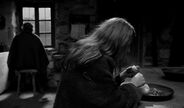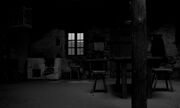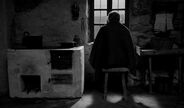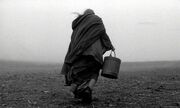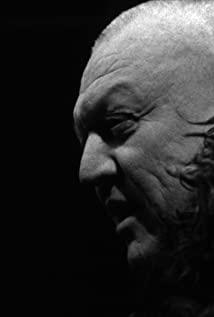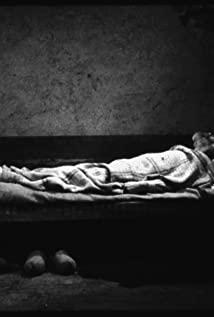-
Karlie 2023-09-21 11:00:14
In the past, the anti-"Satan of the World" and the black "creation of whales" are not enough. Bella Tarr spent six days of story time this time, repeatedly chopping wood and lifting water every day, and chaotic Nietzsche and Creation into darkness. =_= Nietzsche's real cup. . ....
-
Caden 2023-08-18 09:47:29
The director said, "Look at my picture and see if the composition is beautiful!" After watching it for half an hour, "Listen to my soundtrack, isn't it a bunker!" After listening for half an hour, "Look at my The development of the story, isn't it very meaningful!" And then repeat... The above is what I feel, in order not to delay the level of appreciation, five...
-
Dianna 2023-07-16 06:26:23
Tarr's dreamlike images and miracles show Nietzsche's nightmare. The seemingly peaceful and simple life of human beings implies an inescapable fate. People are like God's playthings. Light, water and fire can also take them back, but people are embarrassed in the war with the environment and the heart. The fable of the horse reflects the fate of people. They can't escape the shadow of death, but go crazy before you...
-
Freda 2023-07-09 21:58:57
Recently, I was about to start reading Nietzsche's works, and decided to start with some of his allusions. This famous "Horse of Turin" was recommended by friends... Black and white images, long shots... The first dialogue of this film is 20 minutes later , it uses a suffocating rhythm to let you appreciate how boring and boring life is when it only seeks stability... If you only live to prolong life, then living is really no different from waiting for death... The story is an irony to the...
-
Marie 2023-07-09 16:00:41
20110405 1745 Cultural Centre
-
Leif 2023-06-23 00:16:17
I started watching at 3 o'clock, slept for two and a half hours, and the remaining half an hour was excruciatingly...
-
Wilbert 2023-06-07 16:34:21
The picture is...
-
Jazmyn 2023-06-03 03:15:00
A monk who lives as pale as a monk, there are only a few things he can do in a day, rationality, stubbornness, even his stubbornness is full of reason, and the sound of breathing falls in that paleness, and you can hear the echo. They live in the wind and darkness with unchanging hope and hopelessness, constantly lighting a lamp that does not light, and the two guard the last...
-
Gladyce 2023-05-05 19:42:58
155 minutes, (in a building block-like scene arrangement) piled up/exhausted all the possibilities of life, it is a repeated concrete and a concrete metaphysics. It can be said that the truly great movies are all concrete metaphysical. To a certain extent, this also explains Hu Bo's death. If the horses stopped eating, if the darkness devoured everything, if the destination of escape can only be the starting point, and if all human persistence is meaningless, then really. The rewind in "The...
-
Kiera 2023-04-20 19:44:33
I counted about 29 shots and made full use of the extremely closed and limited space. Each shot, even if it was a repeated scene, was given a different and progressive theme, which was so boring that I couldn’t breathe. I can't help thinking: Why should we live in the face of a mechanically boring and meaningless life? Seeing the father and daughter trying in vain to light the oil lamps, I kind of understood Beratar's answer: we're not trying to live, we're just living, that's...
The Turin Horse Comments
-
Demarcus 2022-04-03 09:01:12
Be a Gypsy from Tomorrow: A Salvation from Destruction
One will of course admire the human being as the great constructive genius who succeeded in piling up an infinite dome of concepts on a precarious foundation, so to speak, on a running water. Of course, in order to be supported by such a foundation, his construction had to resemble a... -
Guiseppe 2022-03-29 08:01:02
Professor Su Mu's question, try to answer
1. "Horse of Turin", if you don't like it, it doesn't matter, you like it, you like it very much. (5 points)
Don't like it, but admit it's a good movie. The whole film consists of 30 long to perverted long shots, many fixed shots and empty shots, the scene, the characters are single, the plot is...
Top cast
-
Bernhard: Theirs is the moment... nature, infinite silence.
-
Narrator: In Turin on the 3rd of January 1889, Friedrich Nietzsche steps out of the doorway of number six, Via Carlo Albert, perhaps to take a stroll, perhaps to go by the post office to collect his mail. Not far from him, the driver of a hansome cab is having trouble with a stubborn horse. Despite all his urging, the horse refuses to move, whereupon the driver - Giuseppe? Carlo? Ettore? - loses his patience and takes his whip to it. Nietzsche comes up to the throng and puts an end to the brutal scene caused by the driver, by this time foaming at the mouth with rage. For the solidly built and full-moustached gentleman suddenly jumps up to the cab and throws his arms around the horse's neck, sobbing. His landlord takes him home, he lies motionless and silent for two days on a divan until he mutters the obligatory last words "Mutter, ich bin dumm!" and lives for another ten years, silent and demented, under the care of his mother and sisters. We do not know what happened to the horse.


